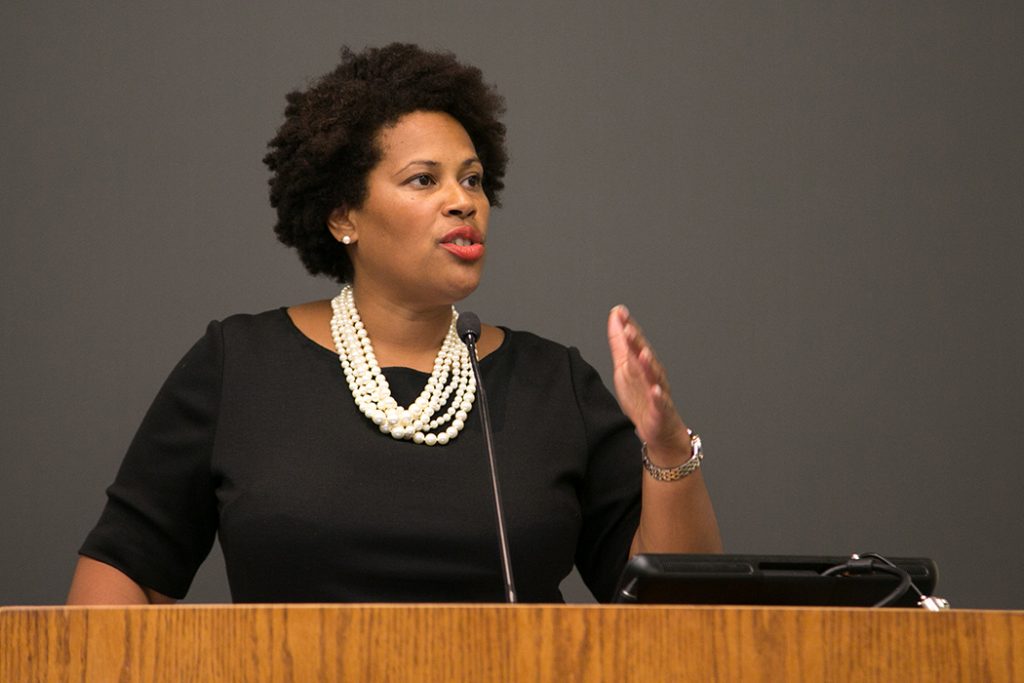Tanisha Sullivan ’02 has been a central voice for African Americans, a voice that is being heard more widely in the national tumult over the killing of black victims by police. Though racial inequality in America is as old as the nation itself, the recent killing of George Floyd by a white Minneapolis police officer, and the ensuing protests, have shed a hotter light on the injustices suffered daily by the black community.
The president of Boston’s chapter of the National Association for the Advancement of Colored People (NAACP) and BC alum has done significant work for racial justice in the city. Recently, she organized a national NAACP conference to be held in Boston this summer, though it was cancelled due to the COVID-19 pandemic.
This has not altered her determination or involvement in representing the black community and fighting for improved policies to protect their rights. Sullivan was quoted in the Boston Globe in late May, commenting on the unity of African Americans in the United States. “Through all that we have been through in this country,” she said, “our spirit is collective.”
Sullivan has also been named to a new commission created in June by Boston Mayor Martin J. Walsh tasked with studying police guidelines, including use of force. Walsh declared a public health crisis in the city and established the commission to explore how to reallocate funds that had been previously designated for police overtime spending. Speaking to the Globe about the declaration, Sullivan said it “really does give us a tool to get to where we need to be, but it certainly is not the end of the road.”
Sullivan brought her expertise in the subject of racial inequality and policy to BC Law last fall when the Rappaport Center for Law and Public Policy held a panel on racism. She voiced her opinions on policy’s effect on racism and acknowledged that change will take time. Nevertheless, she also expressed optimism in seeing systematic faults revealed, a step toward improvement in the way society acknowledges race.


